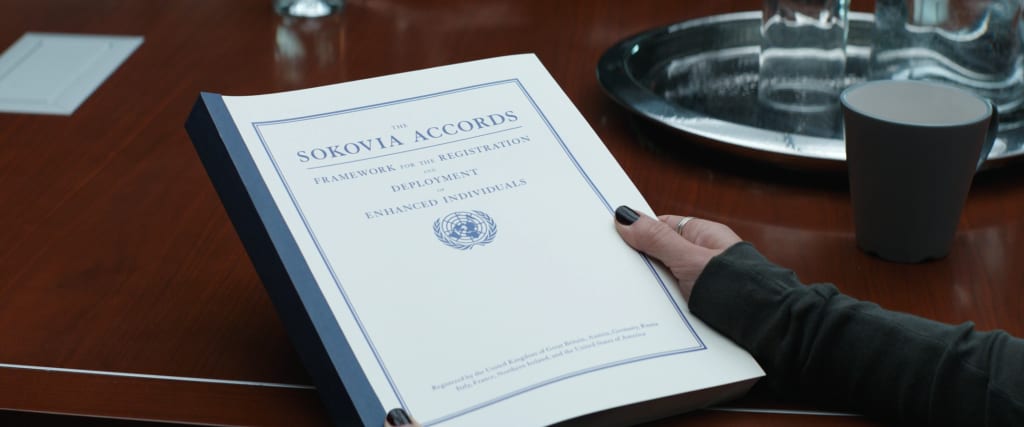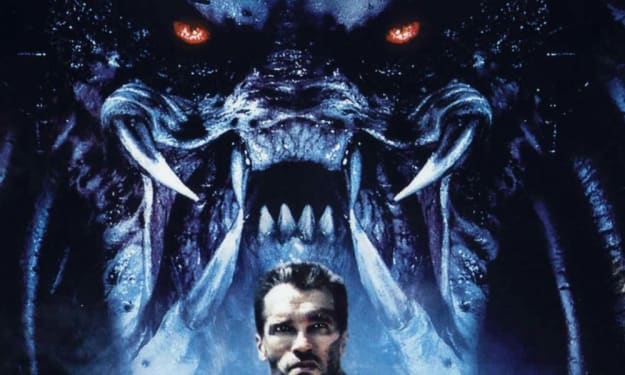MCU: The Sokovia Accords Are Not As Inconsistent As Some Fans Think
Explaining the Accords.

New MCU series She-Hulk: Attorney-At-Law is set to debut on Disney Plus later this week. The second last entry in the MCU's Phase Four, the series will follow Jennifer Walters, cousin of Bruce Banner, as she tries to balance her existing job as a lawyer with learning her new abilities as the She-Hulk. According to recent reports, the series will explain the current status of the Sokovia Accords.
First introduced in Captain America: Civil War, the accords were written up in response to the destruction of Sokovia in Avengers: Age of Ultron, and accidental civilian casualties caused by Wanda Maximoff while the Avengers are on a mission in Lagos, among other past incidents. The Accords would have taken away the Avengers ability to deal with incidents around the world at their own discretion, with the decision of whether or not to deploy the team placed in the hands of the U.N. The decision of whether or not to sign the accords splits the Avengers down the middle, with half of the team on the run for the majority of Phase Three due to their refusal to sign them.
Fans are welcoming the apparent clarification of the Accords that She-Hulk is said to bring. Many have expressed a belief that the terms of the Sokovia Accords have been portrayed inconsistently before this point, with even heroes in support of the Accords supposedly ignoring them. However, if we look at the terms of the Accords as they were originally given, that is not necessarily the case.
The Accords mostly exist to cover large incidents with international impact.
Some fans claim that the Accords are disregarded as soon as Spider-Man: Homecoming, which follows Civil War. Spider-Man operates without any sort of Government oversight, and he doesn't seek official permission in his efforts to track down The Vulture. In the same film, fans have pointed out that Iron Man's quick intervention during the Ferry incident means he probably didn't seek permission beforehand.
However, there are a few reasons why Spider-Man's actions don't necessarily fall under the jurisdiction of the Sokovia Accords. As mentioned earlier, the Accords were written as a response to major events such as the Battle of New York, the fall of Sokovia, and Lagos. The Vulture's attacks are relatively minor incidents by comparison, and seeing as they were restricted to the U.S and didn't result in major casualties, likely wouldn't spark a need for the U.N to get involved.
It is also worth noting that Peter Parker is underage at the time of Civil War, and did not sign the Accords. Tony Stark's encouraging Peter to stay street-level was probably done inthe hope of keeping him under the radar and exempt from the Accords until he was ready. The decision to take the Spider-Man suit from him after the Ferry incident probably came from fear that Peter would not be responsible enough to follow rules or guidelines such as the Accords.
King T'Challa's trip to Busan does not violate the Accords
In the first Black Panther film, King T'Challa of Wakanda, aka the Black Panther, T'Challa's former lover Nakia, and Okoye, leader of Wakanda's Dora Milaje, take a trip to the city of Busan in South Korea, in pursuit of Ulysses Klaue. The trio hope to bring Klaue to justice for stealing a large amount of Vibranium from Wakanda some years before, but unfortunately, they ruin an FBI sting operation being run by Everett Ross, and Klaue escapes.
Some fans point to this scene as T'Challa being in violation of the Sokovia Accords in this scene, however, this is not actually the case. T'Challa is not in Busan as an enhanced individual acting without authorisation. Instead, he is there as a King protecting the assets and national security of his own country. This renders T'Challa exempt from the Accords in this particular instance. The events of the rest of the film, due to being set in Wakanda, would not trigger the Accords either.
The Accords clearly have an impact on the plot of other films.
Even without the explanations for the above examples, it is hard to claim that the Sokovia Accords have ever been entirely ignored when they continue to cause issues for characters in other films, most often those who chose not to sign the Accords. When Ant-Man and The Wasp begins, Scott Lang is on the final few days of house arrest, penance for his role on Team Cap during Civil War. He is broken out by Hope Van Dyne and Hank Pym, both on the run for having refused to sign the Accords or give up their Pym Particle technology. In the early part of the film, Scott's greatest concern is making it home before FBI Agent Jimmy Woo realises he has unwillingly escaped House Arrest.
Clint Barton is known to have been on a similar house arrest deal to Scott, while the rest of Team Cap spends the time between Civil War and Infinity War on the run. Natasha Romanoff signed the Accords initially, but in the post opening credits scenes of the Black Widow, she is forced to go on the run after allowing Steve Rogers and Bucky Barnes to escape during Civil War. Sometime after the events of Black Widow, she reunites with Team Cap.
So, there are quite a few instances within Phases Three and Four where the Accords have remained a factor. And, as it turns out, there may be a way to explain any remaining inconsistencies.
The Accords have likely been altered since they were first written
During a brief truce in Civil War following following Steve and Sam's arrest for their unauthorised pursuit of Bucky Barnes, Tony very nearly convinces Cap to sign the Sokovia Accords. His argument is that if they play nice for a while and win back the public's trust, they will gain the opportunity to request adjustments to the Accords. Unfortunately, the discussion falls apart when Steve discovers that Tony has had Wanda confined to the Avengers Compound.
However, Tony may have been right. Thanks to his compliance to the Accords, Tony may have been able to negotiate alterations to their terms, including provisions for street-level heroes like Spider-Man. Any adjustments may also explain how the Avengers who had been on the run obtained pardons between Infinity War and Endgame. The current terms of the Accords are very likely different to what they were in Civil War.
Hopefully, we will get the promised clarification on the status of the Sokovia Accords when She-Hulk: Attorney-at-Law hits Disney Plus.
About the Creator
Kristy Anderson
Passionate About all things Entertainment!






Comments
There are no comments for this story
Be the first to respond and start the conversation.